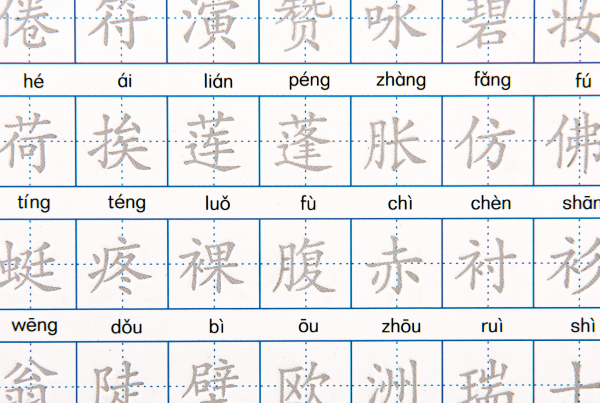Language services in 2021 need to serve the needs of diverse populations and address the need for social distancing brought on by the ongoing COVID-19 health crisis. More than 8% of the United States population is limited English proficient (LEP). That number projected to rise as immigration is expected to account for 88% of the U.S. population increase by the year 2065.
Growing Diversity in the United States has increased the need for professional interpreters and translators to provide communication for Non-English speakers and the Deaf and Hard of Hearing. Organizations across all industries experienced changes to how we communicate. One important change amid the COVID-19 public health emergency is social distancing, which requires that many organizations move activities online, even those that usually occur face-to-face.
Language support is key for all major U.S. industries, from health care to business. Fortunately, with the support of language access technology, the implementation of remote language services, like Video Remote Interpretation and Over-the-Phone Interpretation, makes it easier than ever to deliver language access to multicultural populations.
Today, we’ll look at trends for language services in 2021 and see how major American industries can utilize them to better serve LEP, Deaf and Hard of Hearing populations.
Growing Diversity in the United States
1 in 5 U.S. residents speaks a language other than English at home. Spanish is the most common non-English language spoken in the United States with 41 million native speakers, and with another nearly 12 million bilingual Spanish speakers (2017).
According to the 2016 American Community Survey, languages spoken at home with over 1 million speakers (over the age of 5) include:
- Spanish – 41 million
- Chinese (including Mandarin and Cantonese) – 3.5 million
- Tagalog (including Filipino) – 1.7 million
- Vietnamese – 1.5 million
- Arabic – 1.2 million
- French – 1.2 million
- Korean – 1.1 million
As of 2017, the top 20 non-English languages spoken in the United States include: Spanish, Chinese, Tagalog (including Filipino), Vietnamese, Arabic, French, Korean, Russian, German, Haitian Creole, Hindi, Portuguese, Italian, Polish, Yiddish, Japanese, Persian (including Farsi, Dari, and Tajik), Gujarati, Telugu, and Bengali.
Advances in interpretation technology and understanding how organizations can best use language services in 2021 empowers organizations of all sizes to communicate quickly and effectively with multicultural consumers, consumers, and patients.
Keeping up with Language Access Trends in 2021: 7 U.S. Industries
Health Care Industry
The need for VRI medical interpreters has grown massively due to the ongoing COVID-19 PHE as a need for social distancing has increased the use of telehealth services. Telehealth use surged from 8% of Americans in December (2019) to 29% in May (2020) for primary care and mental health physicians and specialists. We expect this trend will continue as Video Remote Interpreting emerges as the most appropriate interpreting modality for telehealth.
Patient care inevitably suffers when language barriers are not overcome. Studies show that language barriers between doctors and patients, can lead to misdiagnosis and inappropriate treatment are far more likely to occur. Studies show that the use of a qualified medical interpreter has a positive impact on patient care.
Professional medical interpretation and translation services have been associated with:
- Higher quality of clinical care
- Improved care
- Higher levels of patient satisfaction
- Fewer communication errors
- A greater comprehension of diagnoses and follow up care instructions
- Lower rates of readmission
For healthcare providers using video conferencing, phone conferencing, and telemedicine platforms for patient meetings, Telephonic and Video Remote Interpreting provide on-demand access to medically trained and certified interpreters. VRI provides the highest level of accuracy in on-demand healthcare interpretation with the added visual support of the interpreter, enabling healthcare providers to communicate quickly and effectively with limited English proficient, and Deaf and Hard of Hearing patients. Video remote interpreting (VRI) is currently the fastest-growing foreign language service in the United States, and we expect that the trend to adopt and increase the use of VRI will continue as telehealth expands its reach across the country.
In addition to language interpretation, having prepared translation of vital documents in the top non-English languages of healthcare facilities is crucial. Medical documents and patient care instructions can be confusing for a patient, but when the patient does not speak English documents must be provided in the language preferred by the patient.
Education Industry
As of 2016, almost 1 in 4 children in the U.S. (more the 12 million) speak a language other than English at home. The COVID-19 pandemic required many school systems, K-12 and Higher Education, to implement distance learning as the need for social distancing moved education to online platforms.
Education institutions serving ELL, LEP, refugee, and foreign exchange students require interpretation and translation services to remain Title IV compliant and ensure that every student has the opportunity to progress academically. In addition to communicating with students, in many cases, interpreter services and translation services are also necessary to keep limited-English proficient parents and guardians informed about their child’s academic progress and needs. The need for language access in schools will continue to be a priority for distance learning and when children return to the physical classroom.
Whether it’s a scheduled meeting or an unexpected call, a video interpreter or over-the-phone interpreter can be easily added to any call or videoconferencing application, with no special equipment needed. While telephonic interpretation is a perfect solution for spoken languages, video remote interpretation (VRI) has the benefit of visual communication with the interpreter, offering the ability to see the facial expressions of students/families, ensuring a more personal interaction, and providing a high level of accuracy. Because of the visual aspect, VRI can be used for spoken languages as well as American Sign Language to serve Limited English Proficient, and Deaf or Hard-of-Hearing students and families.
Live video interpreters can be added in seconds to provide language interpretation in educational videos, phone meetings, and live virtual lessons using videoconferencing tools such as Zoom, Skype, Webex or any other virtual learning platform. Propio Language Services provides interpreters in 350 spoken languages, and American Sign Language (VRI) to communicate with your students, parents, communities, and staff in need of language interpretation.
Translation services are also available to provide translated lessons, written communications, COVID-19 notices, etc. All translators with whom we contract for education projects are subject-matter experts with experience translating for educational institutions.
Banking and Financial Services
Banking and financial institution experienced a greater need for responsive customer support in 2020 as the number of in-person interactions had to be reduced for COVID-19 safety protocols.
Language services in banking have become a vital part of reaching and retaining multicultural consumers in the competitive industries of banking and financial services. Language services provide banking and financial institutions with a way to reach more multicultural consumers by having instant access to all vital forms in target languages, enhancing customer service, and fostering trust with non-English speaking clients.
Telephonic interpretation (or over-the-phone interpretation) is an on-demand interpreting solution that offers a fast response to support non-English speaking customers. Telephonic interpretation helps your institution:
- Maximize Call Center Efficiency
- Connect Quickly (in Seconds) to Resolve Language Barriers
- Support Non-English Customers in Hundreds of Languages
- Increase Customer Satisfaction.
- Reach and Retain Multicultural Consumers.
- Improve Community Reputation within the LEP Community.
Telephonic interpretation services for banking and finance offers the most cost-effective interpreting solution, and is excellent for many scenarios, particularly for shorter meetings, meetings not planned in advance, and situations that do not require non-verbal cues or visual contact with the interpreter. Video remote interpretation is available for financial institutions of all sizes who need to provide on-demand or regular interpretation services with visual support. Translation of vital documents also ensures that banks, credit unions, and financial services institutions will be able to serve multicultural consumers timely and efficiently. Propio Language Services translators are subject-matter experts with extensive training and experience to translate for the financial industry.
Manufacturing
manufacturing translation and interpretation servicesManufacturing is a highly diverse sector of the economy with a need to communicate effectively in many languages. 1 in 4 U.S. organizations is losing business due to a lack of foreign language skills in the workforce. As the United States continues to become more linguistically and culturally diverse, language services in the manufacturing industry, including translation and interpretation services, are essential. As the United States continues to become more linguistically and culturally diverse, and communication takes place remotely, language services in the manufacturing industry, such as translation and on-demand interpretation services (telephonic and video remote), are essential.
Commonly Translated Documents for the Manufacturing Industry
- Technical Materials (user manuals, safety documents, reports, etc)
- Marketing Materials (promotional information, brochures, etc)
- Packaging and Labeling
- Legal Materials (contracts, user agreements, licenses, etc)
- Vital Forms
- Written Notices
- Signs and Notifications
- Written Communications
- Documents and Communications for Limited-English Proficient Workforce
Language services can help manufacturing businesses raise their revenue by providing quality information to Limited-English proficient and limited English speakers, and on-demand support. Propio Language Services empowers manufacturing businesses to communicate in over 300 languages with customers, clients, the public, and LEP workforces.
Insurance Industry
Policyholders look to insurance as a safeguard, be it automotive insurance, homeowners insurance, property insurance, etc. The intricacies of the insurance industry make it crucial to communicate effectively and accurately at every touchpoint. State and federal legislation, like the Affordable Care Act, have brought more Limited English Proficient clients into the insurance world, and the ability to communicate remotely has never been more critical.
Studies show that people prefer to do business in their native language, especially when they are limited-English proficient. This gives insurance providers an opportunity to reach more multicultural consumers through language services as customers look to insurance to protect what is important to them.
For insurance companies, access to on-demand insurance interpreters trained in specific terminology is both cost-effective and efficient, and being having document translations, prepared by subject-matter experts, in the languages of clients (and potential customers) also establishes trust, confidence, and loyalty…helping insurance agencies connect with more multicultural consumers in a competitive market.
Legal Industry
Effective communication is critical in the legal industry, especially when serving culturally and linguistically diverse populations. Communication during the current Public Health Emergency (PHE) has made it more important than ever to consider remote interpretation solutions, such as over-the-phone interpretation and Video Remote Interpretation, as well as translation services.
United States courts, law firms, corporate legal departments, and organizations of all sizes in the legal industry must ensure effective communication, both written and verbal. Language interpretation and translation services help maintain a positive community image, as well as compliance, security, and regulations.
1.) Lowers costs by maximizing resources and cutting down on time and resources spent dealing with miscommunication errors.
2.) Achieve and enhance government compliance and regulatory compliance with relevant legislation:
- Title VI of the Civil Rights Act of 1964 (Title VI)
- Health Insurance Portability and Accountability Act of 1996 (HIPAA)
- Americans with Disabilities Act of 1990 (ADA)
- Affordable Care Act (ACA), Section 1557
- The Joint Commission
- Fraud, Waste and Abuse Act (FWA)
- Centers for Medicare and Medicaid Services (CMS)
- FEMA
- Homeland Security
- Natural Disaster and Border Contingencies
3.) Increases the efficiency and productivity of courts
4.) Technology allows for increased access to qualified court interpreters (even if there are fewer in-person court interpreters in the area)
5.) Promotes community integration in immigrant, refugee, and LEP communities
6.) Reduces miscommunication errors with can have legal consequences
7.) Enables courts and legal entities to build a higher level of trust with the communities they serve
Government Agencies and Public Services
COVID-19 has had a disproportionately negative effect on Communities of Color, including LEP communities, immigrant communities, refugee communities, Hispanic communities, and Indigenous communities. Improving communication for these communities is key to COVID-19 vaccine campaigns, and public health and safety.
Ineffective communication can lead to miscommunication errors that strain time and limited resources, and may even result in loss of government funding, fines, and public scrutiny. Improving communication for limited-English proficient populations in government agencies and public services leads to improved public service and helps local, state, and federal agencies build stronger relationships and trust with the communities they serve. Professional language interpretation and translation services are key to addressing compliance, confidentiality, and security of information – which are critical to government agencies.
Government Language Interpretation May Include:
- Healthcare
- COVID-19 Vaccine Distribution Campaigns and Contact Tracing
- 9-1-1 Emergency Services
- Courts, Legal, Judicial
- Social Services
- Public Education: K-12 and Higher Education
- Police
- Fire
- EMS Response Teams
- Community Clinics
- Disaster Response and Management
- Emergency Planning
- Code Enforcement
- Public Utilities
Community Outreach, Planning, and Public Notices
For government agencies at federal, state, and local levels, implementing comprehensive language access programs, including written translation and remote language interpretation strategies such as telephonic or video remote interpretation, enhances communication, ensures compliance with relevant legislation, and increases staff efficiency while helping agencies build trust with limited English speaking communities.
How Propio Can Help
Language services in 2021 need to address the United States’ growing diversity and the current need for socially distant and safe communication. Propio leads the way in interpretation technology and customer service, offering the fastest connect times to over 6,000 U.S. based professional interpreters, covering more than 300 languages.
Video Remote Interpreting
Video Remote Interpreting, or VRI, is the fastest-growing foreign language service in the country. An on-demand interpretation solution, VRI bridges the gap between telephonic interpreting and on-site interpreting. Benefits of Video Remote Interpreting include:
- Gain visual support with enhanced accuracy
- See facial expressions of the interpreter and know they understood
- Confirm the meaning of non-verbal communication
- Help the conversation for you, the interpreter and the LEP patient
- Cost-effective. There are no minimum hours or mileage reimbursement needed to gain access to the interpreter.
- On-demand access
VRI promotes the highest level of accuracy in interpreting, second only to on-site interpreting. Propio Language Services provides HIPAA, HITECH, and ADA compliant VRI services that can be accessed in seconds, available 24/7, 365 days a year – with assembly from any office or field site.
Learn More about the benefits of Video Remote Interpreting. DOWNLOAD the free white paper!
Telephonic Interpretation
Telephonic interpretation is an on-demand, remote interpreting service that offers a fast response when urgent or unexpected language barriers come up. Telephone interpreting bridges the language gap in areas where on-site interpreters cannot, such as an emergency situation, call-center support, situations that require a fast response, or in a rural area where a local interpreter cannot be immediately available.
When you need language support, you don’t have minutes to wait on hold. Propio Language Services connects organizations to certified, U.S. based interpreters faster than any other vendor. Our proprietary technology also ensures that there are no outages in the event of a national emergency.
Learn More about the importance of offering language services as an organization. DOWNLOAD the free white paper!
Translation Services
Translation services require not only target language/English proficiency, but also a high level of detail and comprehension to topic-specific terminology.
At Propio, our translators are subject-matter experts who have been through specialized training to meet the unique set of skills, knowledge, and experience to ensure proficiency in medical, education, legal, and financial services content, formatting, etc. Propio only uses translators that have native fluency in both the Target Language and English, and have at least 2 years of experience in written translation.
In light of the ongoing COVID-19 Public Health Emergency, organizations must be able to communicate effectively with multicultural populations, across all industries. 1 in 4 U.S. organizations is currently losing business due to a lack of language skills and cultural awareness in their workforce. Interpretation technology makes it easier than ever to provide customers, clients, and patients with the language services they need.
A leading provider of language service solutions since 1991, our network of 6,000+ certified interpreters are superior trained to fit the needs of organizations of all sizes. Wondering how to reach your language access goals in 2021? Contact us today for a free quote.
COVID-19 Language Support: Learn More about No Contract Language Services
6,000+ interpreters ready to speak in over 300 languages!
Contact Propio Language Services today!
Certified interpreters available telephonically, face-to-face, or via video remote!








